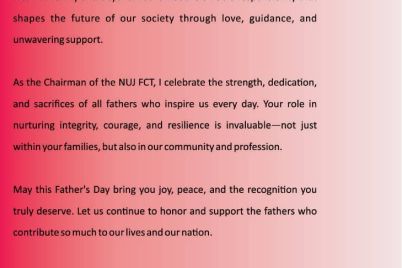By Sarauniya Usman,Abuja
The National Assembly says it will give necessary support to stakeholders in housing sector towards reducing Nigeria’s housing deficit.
Chairman, Senate Committee on Housing, Sen. Sam Egwu, made the pledge at the opening of a workshop, with a theme “Emerging Trends in Real Estate Development in Nigeria” organised by the Real Estate Developers Association of Nigeria (REDAN), on Thursday in Abuja.
He said the committee would give priority to bills seeking to address challenges in the housing sector so as to make suitable, adequate and affordable housing available to all Nigerians.
He urged the association to recommend necessary bills for consideration and advised it to redirect housing investment to low income earners.
“For real estate developers to effectively play their role in delivering affordable housing to citizens, they must understand the emerging trends in real estate development globally.
“Unfortunately, the organised private sector seems to have catered only for the middle and upper classes with little or nothing to meet the housing needs of low income earners”.
“I urge you to look in the direction of low income earners to reduce the current overwhelming housing deficit and provide affordable housing to majority of Nigerians at that level”.
“You are encouraged to explore the advantages of using locally sourced building materials to develop cost effective houses that majority of the country’s low income earners can afford.”As against the conventional very costly building materials that has made housing unaffordable to majority of Nigerians,”he said.
The President, REDAN,Rev. Ugochukwu Chime, said the training, was to give participants insight into the realms of how best to do business with less stress, risk and impact positively the development of the economy.
He said the association was involved in capacity building for all practitioners in the sector which included artisans and other direct home construction personnel need be trained and retrained to increase their competencies in constructing durable homes.
“The training is part of the process of dimension and de-risking the real estate value chain and operating environment. We must support government in fighting criminality and our members must comply with extant laws.
“That is why our Code of Conduct is tailored towards ensuring compliance with Anti-Money Laundering and Combating the Financing of Terrorism (AML/CFT) rules.
“The rating of the real estate sector as a medium high risk area for money laundering and terrorism financing is very dan”Theous and worrisome.
“The support and collaboration of all well-meaning Nigerians is urgently needed to curb this menace,” Chime said.
He said the association was partnering with the Economic and Financial Crimes Commission (EFCC) to stem the element of fraud and terrorism financing and money laundering to weed out fraudsters from the sector.
He said he was optimistic that the programme which was the first of its kind by the association would move the real estate sector to another sphere of integrity.
The Managing Director, Family Homes Funds,Mr Femi Adewole,
a participant, whose organisation recently commissioned close to 11,300 homes targeted at low income earners said the training was apt and well thought out.
He said it would go a long way to build the capacity and skills of those in the sector and at the same time create awareness to refocus attention to the housing needs of the common citizens even those in the Internally Displaced Persons (IDPs) camps.
Group Head, Analytic, Projects and Special Examination, Central Bank of Nigeria (CBN) ,Mr Adesemoye Adedeji,
said the organisation was making efforts to ensure that monetary policies that would encourage mortgage was put in place.
He added that though inflation had a role to play in the rate of interest being charged by banks, the CBN was doing all that was possible to ensure that loans for housing come to a single digit rate.
NAN reports that the training was the first to be organised by the association and it would be followed by another in Lagos on Nov. 20 and Nov. 22 in Owerri, Imo state.

